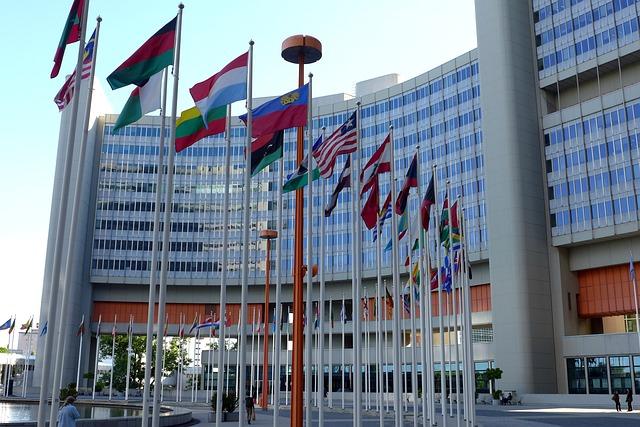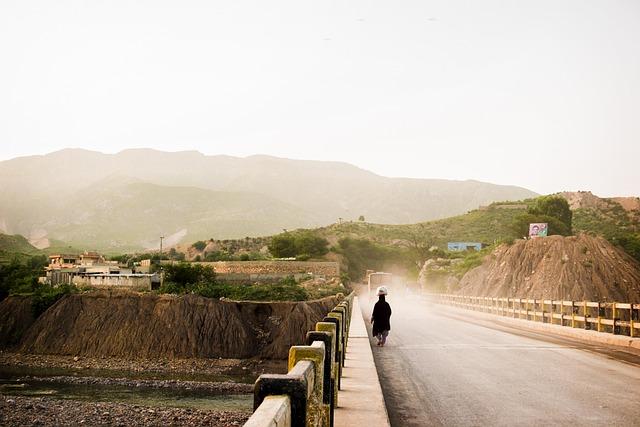Introduction:
In the intricate tapestry of global geopolitics, Pakistan occupies a unique and pivotal thread, weaving its historical narratives and aspirations into the fabric of international relations. Nestled at the crossroads of South Asia, Central Asia, and the Middle East, this nation stands as a testament to the complexities of diplomacy, strategy, and alliance-building. With a rich heritage and a turbulent past, Pakistan’s strategic position is not just a geographical reality but a dynamic force that influences regional stability, economic partnerships, and security frameworks.
As the world grapples with shifting power dynamics, from the rise of emerging economies to the reshaping of old alliances, Pakistan finds itself navigating a landscape rife with both challenges and opportunities. Its relationships with neighboring giants like India and China, alongside its ties with western powers, reflect a delicate balancing act. This article aims to explore the nuances of Pakistan’s strategic position, examining how its historical context, geographic advantages, and contemporary policies collectively shape its role on the global stage. Through an unbiased lens, we will delve into the implications of these relationships, shedding light on how Pakistan maneuvers through a complex web of international relations amid an ever-evolving global order.
Pakistans Geopolitical Landscape: Understanding Regional Dynamics and Influences
Pakistan occupies a pivotal role in South Asia, serving as a bridge between major regional powers and global players. Its geopolitical landscape is defined by historical ties and emerging alliances that shape its international relations. The nation’s long-standing relationships with China and the United States highlight the complexities of its foreign policy, as Islamabad seeks to balance these relationships while catering to its domestic needs. Additionally, the rivalry with India complicates Pakistan’s pursuit of stable bilateral ties, necessitating a careful navigation of diplomacy and military readiness. Critical issues such as water disputes, trade relations, and border security further contribute to the regional dynamics, making Pakistan a significant player in the geopolitical chessboard.
Moreover, Pakistan’s engagement in multilateral organizations like the South Asian Association for Regional Cooperation (SAARC) and its partnership with the Shanghai Cooperation Organization (SCO) reflect its strategic interests in fostering regional cooperation. These platforms enable Pakistan to assert its influence while advocating for common objectives such as economic development and security collaboration. The burgeoning relationship with Afghanistan post-Taliban rule adds another layer to its geopolitical strategy, as Islamabad seeks to promote stability within its borders while addressing cross-border challenges. Understanding these regional dynamics and influences is crucial for comprehending Pakistan’s role in international relations and its ongoing efforts to secure its national interests.

Balancing Act: Pakistans Relations with Major Powers and Emerging Economies
In the complex arena of international diplomacy, Pakistan’s strategies have increasingly been characterized by a desire to balance relationships with major global powers while simultaneously forging ties with emerging economies. This nuanced approach involves navigating the interests of countries such as the United States, China, and India, each of which presents unique challenges and opportunities. The China-Pakistan Economic Corridor (CPEC) is a prime example of how Pakistan is leveraging its geographical position by deepening economic ties with China, including significant investments in infrastructure that are pivotal for regional connectivity and trade. Simultaneously, Islamabad has endeavored to maintain a cooperative yet critical relationship with the U.S., focusing on counter-terrorism efforts and economic assistance while also addressing the complexities of its ties with India, especially regarding regional security concerns.
Emerging economies, particularly those within the Islamic Cooperation Organization (OIC) and the Shanghai Cooperation Organization (SCO), are also becoming crucial partners for Pakistan. This strategic pivot towards non-Western allies has led to several initiatives aimed at fostering economic collaboration and mutual support. Notably, Pakistan’s engagement with countries like Turkey, Iran, and even African nations reflects its intent to diversify its partnerships and reduce dependency on traditional powers. The following table summarizes key partnerships and their strategic significance:
| Partner | Strategic Significance |
|---|---|
| United States | Counter-terrorism, military aid, and economic support |
| China | CPEC, infrastructure investment, and trade opportunities |
| Turkey | Defence collaboration, cultural ties, and trade expansion |
| Iran | Energy cooperation and regional stability |
| South Africa | Trade diversification and support in international forums |

Economic Diplomacy: Leveraging Trade Agreements for Strategic Advantage
In an era where economic leverage often translates into geopolitical strength, Pakistan’s engagement in trade agreements is a pivotal component of its international relations strategy. By actively seeking partnerships through bilateral and multilateral trade agreements, Pakistan positions itself not just as a market but as an essential player within regional and global supply chains. Key benefits of these agreements include:
- Market Access: Enhanced privileges in larger markets for local exporters.
- Investment Attraction: Drawing foreign direct investment by showcasing a commitment to free trade.
- Economic Diversification: Reducing reliance on specific markets or sectors.
- Regional Cooperation: Strengthening ties with neighboring countries through economic collaboration.
Applying careful diplomacy, Pakistan can leverage these trade agreements to address domestic challenges while simultaneously enhancing its global standing. For instance, strategically aligning with emerging markets can promote technological exchange and boost key sectors such as agriculture and textiles. By focusing on priority sectors, Pakistan can effectively utilize trade dynamics to potentially shift power balances in its favor:
| Priority Sector | Potential Benefits |
|---|---|
| Agriculture | Increased exports and food security. |
| Textiles | Enhanced market reach and employment opportunities. |
| Information Technology | Technological advancement and skilled workforce development. |
| Energy | Improved infrastructure and investment in renewable resources. |

Future Prospects: Recommendations for Strengthening Pakistans Global Standing
To enhance its global standing, Pakistan should consider several strategic initiatives aimed at cementing its role in international relations. Increasing participation in multilateral organizations can provide a platform for Pakistan to voice its perspectives on global issues, from climate change to economic development. Moreover, fostering stronger bilateral ties with key global players, particularly in trade and technology sectors, can facilitate economic growth and innovation. Pakistan could benefit from establishing joint ventures and partnerships with nations that have advanced expertise, particularly in renewable energy, technology, and infrastructure development.
Furthermore, investing in public diplomacy will play a critical role in shaping Pakistan’s narrative on the global stage. Emphasizing cultural exchanges, educational programs, and people-to-people connections can help dismantle stereotypes and foster mutual understanding. To support these efforts, a clear strategy that outlines key industries for collaboration and specific goals should be developed. A table below summarizes recommended sectors and potential partners:
| Sector | Potential Partners |
|---|---|
| Renewable Energy | Germany, Japan, USA |
| Information Technology | India, South Korea, Silicon Valley firms |
| Agriculture | Netherlands, Australia, Canada |
| Tourism | Malaysia, Thailand, UAE |
Future Outlook
As we conclude our exploration of Pakistan’s strategic position within the intricate web of international relations, it becomes evident that the country’s geographical and geopolitical significance holds immense sway over its diplomatic endeavors. Positioned at the crossroads of South Asia, Central Asia, and the Middle East, Pakistan finds itself continually adapting to the evolving dynamics of global politics.
Through navigating its relationships with neighboring giants and forging new alliances, Pakistan illustrates the delicate balance of cooperation and conflict inherent in international relations. Its partnerships, from historic ties with China to complex interactions with the United States and India, highlight Pakistan’s efforts to assert its sovereignty while contributing to regional stability.
Looking ahead, the challenges Pakistan faces are intertwined with opportunities for growth and collaboration. In a world defined by interdependence, the paths Pakistan chooses to tread will not only shape its future but could also influence broader regional and global landscapes. As we witness the ongoing transformations in international relations, one thing is clear: Pakistan’s strategic position will continue to be a focal point of interest and analysis in the arena of global diplomacy.



